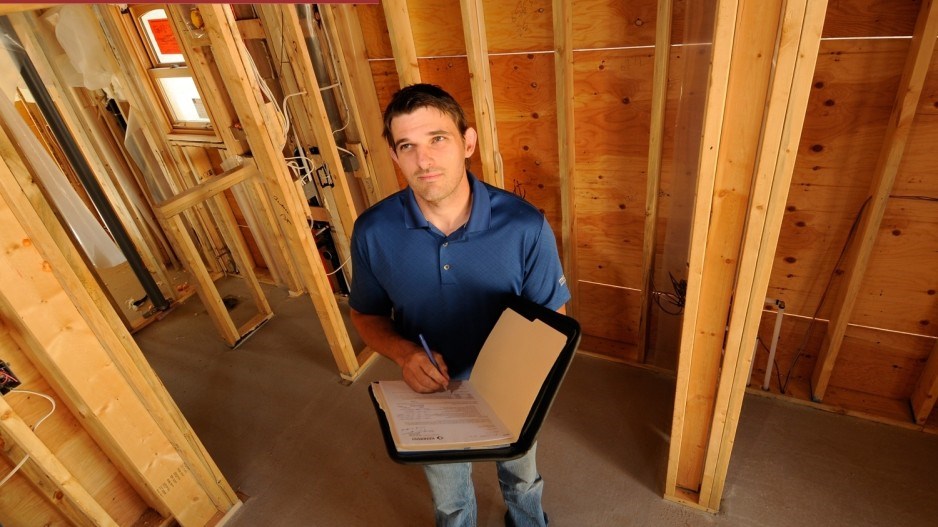Last year, a young married couple decided to build a 1,600-square-foot addition to the small character house they own in toney southwest Vancouver. The husband was acting as his own contractor and doing most of the work himself.
Since then, the addition and the original house have been demolished and the couple have separated, victims of another home renovation gone horribly wrong.
"They never picked up a city permit for the addition," said Jim Smith, project manager for Delta-based Kenorah Construction and Design Ltd., who was called in by the "shocked owners" when city inspectors stopped work on the addition and ordered all the work to be removed.
The owners already had the concrete foundation in place and framing and tile work tied to the original house – a $50,000 expense – when the inspectors stepped in.
The inspectors found that no electrical or plumbing or drain tile permits had been approved and no inspections were made on the foundation form before concrete was poured.
"It made sense to demolish the entire house and start over," Smith said. The demolition costs alone were $10,000, plus a $1,000 city permit. Kenorah is now building a brand new house and a separate laneway house on the lot, at a cost of approximately $1 million. Only the wife is still involved.
Smith has seen his share of bad renovations, including a Burnaby project where a house was lifted to provide space for a rental suite. A "questionable" contractor failed to jack the house properly and the entire building shifted, causing severe damage, Smith said.
While nightmarish, such stores are not uncommon in Vancouver where tens of thousands of home renovations are vulnerable in an expanding underground economy.
Dodging taxes
"You hear of renovation horror stories, but often it is the homeowner who is at fault," said Jeff Bain, chair of the 152-member Renovation Council of the Greater Vancouver Home Builders' Association (GVHBA). Homeowners, he said, are often eager to save time, dodge the 12% harmonized sales tax and avoid perceived delays and cost of building permits, especially under new environmental policies.
Bain has some sympathy, noting that even experienced contractors can face weeks-long delays for permits in some Metro Vancouver suburban municipalities.
Demand remains strong for higher-end renovations, Bain said, despite a slowing Metro Vancouver real estate market and recent mortgage changes that restrict access to home equity loans.
The GVHBA estimates $3.8 billion will be spent on RenoMark (see below) contracts this year, but its "best guess" is that illegal work accounts for at least another 30% of all home renovations.
Members of the renovation council are RenoMark members, a designation that means the company has to offer a minimum two-year warranty on all work; carry at least $2 million in liability insurance; and abide by a code of ethics. Still, RenoMark members represent fewer than 10% of Metro Vancouver renovation contractors, a trade that requires no licensing or even experience.
Potential danger
The potential dangers in illegal renovations are especially frightening, because, by definition, such renovations leave no paper trail, according to lawyer Ian Moes.
It is common, he said, for "fly-by-night" contractors to ignore not only taxes and permits but also liability insurance.
"Everyone is exposed," said Moes, a construction law specialist with Abbotsford-based Kuhn and Co. LLP.
For example, if an uninsured contractor is injured on site, the homeowner is considered liable and can be sued for damages. On the other hand, if a homeowner refuses to pay for work performed, the contractor has no written evidence to back a claim.
Cheating can also cut into a home's value when it comes to sell.
"Any buyer is going to ask for proof that the work was done properly, with permits," Moes said. If the paper isn't available, the buyer may walk away or low-ball the price, he said.
Then there is the lien factor. Any subcontractor or supplier can file a lien on a home if the contractor hasn't paid the bill. And, as Moes points out, a contractor willing to stiff Revenue Canada and city hall is also likely to jilt others.
A lien on a house can stop a sale, and a court can even order the house sold to pay a lien claimant. The best protection for a homeowner is a holdback, where 10% of the renovation costs are held in trust until the job is complete. But in most illegal work the holdback is ignored because it can't be enforced.
Poor judgment
Bain, who owns JBK Construction Ltd., believes the HST fuelled under-the-table renovations because it applied a sales tax to both labour and materials, while the former provincial sales tax was just on materials.
But even when renovations are being done legally, problems can arise through poor budgeting or bad communication, renovators say.
"I have seen $30-per-hour workers standing around while the spouses argue about the renovation over the kitchen island," said Bob Rasmus, the former owner of RJR Construction Management Ltd.
"A lot of homeowners underestimate their [renovation] budget," said Bain, who added that in some cases, this can mean an unfinished, unusable kitchen or an open roof covered in tarps.
"But we can't keep working if the money stops." •
With additional reporting by Richard Chu




